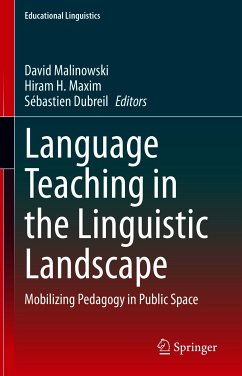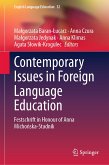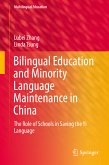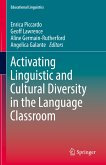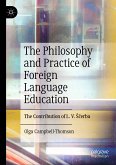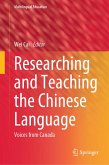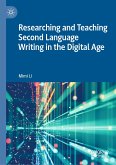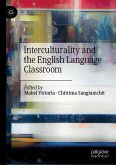This book builds upon the growing field of Linguistic Landscape in order to demonstrate the power of a spatialized approach to language, culture, and literacy education as it opens classrooms and cultivates new competencies.
The chapters develop major themes, including re-imagining language curricula, language classrooms, and schoolscapes in dialogue with the heteroglossic discourses of the local; developing L2 learners' symbolic, translingual competencies through engagement with situated, multimodal texts; fostering critical social awareness through language study in the linguistic landscape; expanding opportunities for situated L2 reading and writing; and cultivating language students' capacities for engaged scholarship and research in out-of-class contexts.
By exploring the pedagogical possibilities of place-based approaches to literacy development, this volume contributes to the reimagining of language education through the linguistic landscape.
Dieser Download kann aus rechtlichen Gründen nur mit Rechnungsadresse in A, B, BG, CY, CZ, D, DK, EW, E, FIN, F, GR, HR, H, IRL, I, LT, L, LR, M, NL, PL, P, R, S, SLO, SK ausgeliefert werden.
Die Herstellerinformationen sind derzeit nicht verfügbar.
David Malinowski is Assistant Professor in the Department of Linguistics and Language Development at San José State University. With interests in language and literacy education, multimodal communication and technology-enhanced learning, he teaches and conducts research on language teacher development, language teaching with technology, and place-based language learning. He is an associate editor for the journal Linguistic Landscape. Hiram H. Maxim is Professor of German Studies and Linguistics at Emory University. His research interests lie in the general area of instructed adult second language acquisition with specific interest in the relationship between second language reading and writing and curricular approaches that facilitate that intersection. Sébastien Dubreil is Teaching Professor of French and Francophone Studies, Second Language Acquisition, and Technology-Enhanced Learning at Carnegie Mellon University. Specializing in CALL, his research interests focus on the use of technology in fostering transcultural learning. His most recent research examines the notions of social pedagogies, linguistic landscapes, and game-based language and culture learning.
Introduction by David Malinowski, Hiram Maxim, and Sébastien Dubreil.- Part I: Transforming Language Curricula and Learning Spaces.- Linguistic landscape projects in language teaching: Opportunities for critical language learning beyond the classroom by María Eugenia Lozano, Juan Pablo Jiménez Caicedo, and Lee Abraham.- Linguistic landscape images and Québec's cultural narrative in French textbooks by Carol A. Chappelle.- Teaching with virtual linguistic landscapes: Developing translingual and transcultural competence by Sungwoo Kim and Michael Chesnut.- University exchange students' practices of learning Finnish: A language ecological approach to affordances in linguistic landscapes by Tamas Peter Szabó and Hannele Dufva.- Classroom translanguaging through the linguistic landscape by Corinne Seals.- Part II: Fostering Critical Social Awareness.- Building language teacher awareness of colonial histories and imperialistic oppression through the linguistic landscape by Andrea Sterzuk.- Floating traffic signs and the ambiguity of silence in the linguistic landscape by Diane Richardson.- A geolocative linguistic landscape project in Korean as foreign language education by Hakyoon Lee and Bumyong Choi.- Using linguistic landscapes as stimuli for relevant EFL writing by Rawia Hayik.- Developing critical sociolinguistic awareness through linguistic landscapes in a mixed classroom: the case of Spanish in Texas by Idoia Elola and Josh Prada.- Part III: Language Students as Researchers and Linguistic Landscape.- Linguistic landscape as an antidote to the commodification of study abroad language programs: A case study in the center of Madrid by Alberto Bruzos Moro.- Taking the foreign out of language teaching: opening up the classroom to the multilingual city by Lourdes Hernandez-Martin and P. J. Skrandies.- Ethnographic language learning projects through the linguistic landscape by Peter Sayer.- Investigating bulletin boards with students. What can Citizen Science offer education and research in the linguistic landscape? Helle Lykke Nielsen, Tove Rosendal, Johan Järlehed and Christopher Kullenberg.

